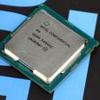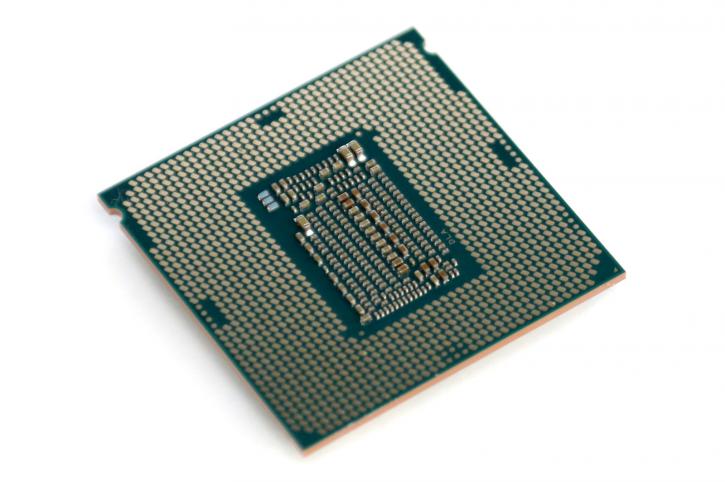Final Words & Conclusion
Conclusion
The Core i7 9700K sits in between the six-core 9600K and flagship 9900K. Arguably it is a beast of a gaming processor, but at a price of $369 the 9600K with six cores seems to be the better deal? I mean there's nothing wrong with this proc, but it does lack hyper-threading. And in this price range and class of processors, that's a little awkward and, yeah, it definitely shows in threaded performance. So from a threading performance point of view, this processor is somewhere in the middle of everything. Then again, if you want to be a bit more future proof, eight cores is the way to go. Single threaded performance, with that 4.9 GHz clock, is through the roof. The reality, however, is that Intel is cashing in on one of their strong points, high clock frequencies. And since games only need up-to six threads (mostly), the biggest benefit is a faster-clocked core. The instructions per core can be calculated faster and that drives up your gaming framerates if your graphics card isn't GPU limited. As you have been able to see, it is in that respect where the Core 9000 series processors will shine, as the extraordinarily high clock frequencies boost overall game performance. I immediately need to make a side-note here; that performance difference you're only going to see with the 1000 USD and more expensive graphics cards as, really, these only run into GPU limitation at Ultra HD. But the reality is simple, the Core 9000 series will be excellent gaming processors. And that will be the thorn in the side of AMD as they cannot pass that ~4.2 GHz marker. AMD's answer for that needs to be ZEN2. The new Core i7 9700K absolutely rocks at gaming. Strictly speaking though, as you have seen, if you look at IPC at 3500 MHz then Coffee Lake certainly isn't faster compared to the previous gen product, in fact, they are merely a few points away from Ryzen in that respect. Intel simply benefits greatly from the fact that they can reach very high clock frequencies and then you have eight cores that function between 4.6 and 4.9 GHz, well that's golden stuff.
Power consumption
With this eight-core, eight threads proc you get a 95 Watt TDP processor. With the system at idle with a GeForce RTX 2080 Ti installed / 16 GB memory / SSD and the Z390 motherboard, I hovered at roughly 60~65 Watts in IDLE. That's okay, the load values are okay as well but definitely higher. When we stressed the processor 100% we reach roughly 180 Watts with this 8-core part. That's the entire system.
DDR4 Memory
For Coffee Lake-S (8th and 9th Gen Intel procs) and DDR4 we always say, volume matters more than frequency. A 3,200 MHz kit, for example, is more expensive and does offer better bandwidth but the performance increase in real-world usage will be hard to find. Unless you transcode videos over the processor a lot. As always, my advice would be to go with lower clocked DDR4 memory with decent timings, but get more of it. Don't go for 8 GB, get two or four DIMMs and, in total, a minimum of 16 GB. The reason we test at 3200 MHz is simple, we do the same for AMD Ryzen and want to create a fair and equal playing field for both. 3200 MHz is, however, a very nice equilibrium for both processor brands.
Performance & tweaking
We tested multiple Z390 motherboards all with the latest BIOS. I'd rate the 9700K 8-core processor as 'really good' for gaming and good for your typical threaded applications. It puzzles me as to why Intel did not simply enable hyper-threading, as it would have been far more serious competition against, say, a Ryzen 7 2700X.
Temperatures are definitely higher for the 8-core parts, but totally fine under default circumstances and clock frequencies. Once tweaked we noticed that the eight cores like a bit of extra voltage, we expect all-core tweaks in the 5 to 5.2 GHz marker to need 1.325V with higher tweaks in the 1.35~1.40 Volts ranges on the processor. While that does increase power consumption, it wasn't something that scared me away. Temps at such voltages reach a more serious 80 Degrees C marker. We, however, did use an engineering sample (ES) and did use LCS cooling. If you plan a tweak at that 5 GHz marker then remember my remarks on cooling, you will need LCS, that or a very good heat pipe cooler. The infrastructure that Z390 offers is easy to use, you increase the CPU voltage and multiplier and you are good to go. Another plus for the Intel platform is that over the years they have been able to refine their memory controllers, pop in anything XMP 2.0 and you have a 90% chance it'll work straight out of the box with very fast memories. Keep in mind that all our tests are performed at 3200 MHz DDR4, similar to Ryzen and Threadripper to remain objective and for fair play on both sides. Realistically though, Ryzen is more memory frequency dependent in gaming than Intel is.
Final words
The Core i7 9700K is a really nice processor, a little less for heavily threaded applications, but for gaming it rocks. It is, however, a little more difficult to recommend when it's just about gaming as the Core i5 9600K makes more sense, value wise. For games, six cores are fine, especially when you tweak them to 5 GHz, where the sky is the limit. If you'd like to be a little more future proof, then sure, I would recommend 8 cores. But 8 cores come at a price level where we expect hyper-threading. This is my one caveat with the 9700K as, with multi-threaded applications, hyper-threading (SMT) matters quite a lot. Then again, I'd prefer 8c/8t over, say, 4c/8t anytime as well. While writing this review I had not received pricing just yet, but expect the Core i7 9700K to sell at roughly $369. However, I do need to make a side note; as 14nm production is limited, that drives up prices. We have no idea what the final retail price will be due to upcoming and pending shortages. This processor performs at the threaded application level of the AMD Ryzen 7 2700X, and that processor is 299 USD. When I reverse that and look at the pricing, realistically the Core i7 9700K sits in Ryzen 7 2700X territory but even that SKU is 40 bucks cheaper. Threaded performance wise, in all instances Ryzen 7 2700X is the faster product. However, for gaming combined with an extremely fast graphics card, that picture is reversed as any Core 9000 proc overall simply delivers fantastic results there due to its high clock frequency. Six cores is the new four cores, but eight cores are more future proof. However, I do solemnly feel that an 8-core processor should have SMT/hyper-threading, and that makes this purchase more difficult to recommend.
Would Intel have enabled SMT on the Core i7 9700K, it would also have beaten the 2700X from AMD on all fronts, so I do remain a bit puzzled about that choice. Stability and functionality wide all ran as expected with expected performance, gaming wise the 9700K is a beast (if you give it that fast enough 1000 USD GPU). While I'd probably prefer a Core i5 9600K for budget reasons, or the Core i9 9900K for that more enthusiast level performance, we can certainly recommend this processor if you have an urge for a fast gaming CPU.
Handy related downloads:
- Sign up to receive a notice when we publish a new article
- Or go back to Guru3D's front page



